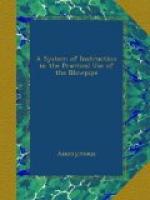Behavior
in glass-bulb. Fuses and
gives off water having an acid
reaction,
naphtha and a tarry fluid, which
chiefly
condense in the neck of the bulb, and
leave
a light, pulverulent carbonaceous residue.
on platinum foil. Fuses, takes
fire, and burns with a smoky flame,
leaving
a carbonaceous residue, which under the
blowpipe
flame, is quickly consumed, with the
exception
of the ashes.
* * * * *
Mineral. Hachettine
Formula. C + H.
Behavior
in glass-bulb. Fuses to a
clear colorless liquid, which
solidifies
on cooling and has a tallow-like
smell.
on platinum foil. Fuses, takes
fire, and burns with a bright flame
until
entirely consumed.
* * * * *
Mineral. Ozokerite
Formula. C + H.
Behavior
in glass-bulb. Fuses readily
to a clear brown oily fluid, which
solidifies
on cooling.
on platinum foil. As the preceding.
* * * * *
Mineral. Amber
Formula. C + H + O.
Behavior
in glass-bulb. Fuses with
difficulty, and affords water, an
empyreumatic
oil, and succinic acid which
condense
in the neck of the bulb leaving a
shining
black residue.
on platinum foil. Takes fire
and burns with a yellow flame and a
peculiar
aromatic odor.
* * * * *
Mineral. Mellite
Formula. [...Al][=M]^{3} + 15[.H]
Behavior
in glass-bulb. Gives
off water. If heated to redness, is
carbonized, and gives a slight
empyreumatic odor.
on platinum foil. On charcoal
burns to a white ash, which moistened
with nitrate of cobalt and
heated shows the
alumina reaction.
* * * * *
POTASH.
* * * * *
Mineral. Nitre
Formula. [.K][.....N]
Behavior
(1) in glass-bulb. Fuses
readily to a clear liquid and with a
strong heat boils with the
evolution of oxygen.
(2) in open tube. —
(3) on charcoal. Deflagrates
leaving a saline mass, which is
absorbed
into charcoal and gives a sulphur
reaction
on silver.




